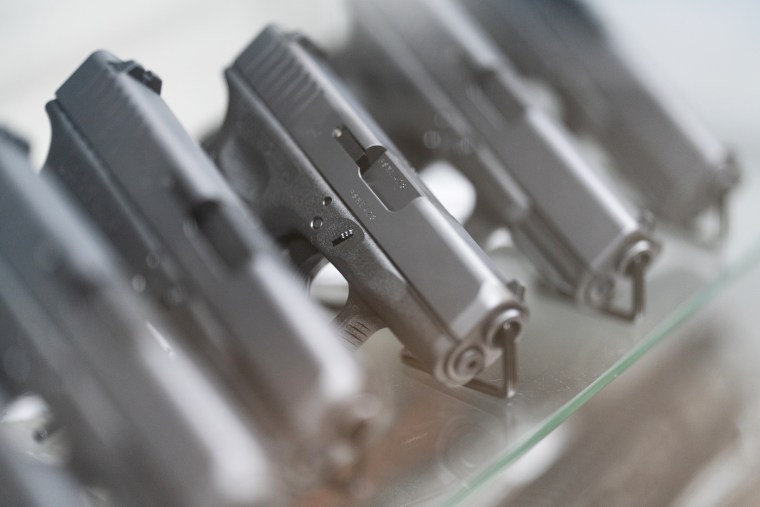WASHINGTON — A federal appeals court ruled Tuesday that the federal law banning handgun sales by licensed dealers to anyone under 21 is unconstitutional.
A panel of the 4th U.S. Circuit Court of Appeals, based in Richmond, Virginia, voted 2-1 to declare the law invalid. "Our nation's most cherished constitutional rights vest no later than 18. And the Second Amendment's right to keep and bear arms is no different," the majority opinion said.
The ruling, which is sure to be appealed, was a victory for a Virginia woman, Natalia Marshall. She wanted to buy a handgun to protect herself from her abusive ex-boyfriend and to defend herself in remote rural areas where she works with horses. When she was turned down by a licensed firearms dealer because she was 18, she sued to challenge the law.
"We first find that 18-year-olds possess Second Amendment rights," Judge Julius Richardson wrote. "They enjoy almost every other constitutional right, and they were required at the time of the Founding to serve in the militia and furnish their own weapons."
The majority said Congress used misleading data to justify passing the law in 1968. "Congress may not restrict the rights of an entire group of law-abiding adults because a minuscule portion of that group commits a disproportionate amount of gun violence."
Tuesday's ruling applies only in the five states of the 4th Circuit — Virginia, Maryland, West Virginia and North and South Carolina. A separate federal law allows anyone over 18 to guy a long gun, such as a rifle or a shotgun.
In dissent, Judge James A. Wynn Jr. said the ruling invalidated a modest and long-established effort to control gun violence. "The majority's decision to grant the gun lobby a victory in a fight it lost on Capitol Hill more than fifty years ago is not compelled by law. Nor is it consistent with the proper role of the federal judiciary in our democratic system."
The Second Amendment, he said, is different "not because it is uniquely oppressed or imperiled, but rather because it is singularly capable of causing harm."
The law does not ban the possession of handguns by those under 21, only the sale of them by licensed dealers. So a parent could buy a handgun as a gift, for example, and give it to a child who was under 21, or someone 18 to 21 could buy a handgun from a private dealer.
The 5th U.S. Circuit Court of Appeals, based in New Orleans, upheld the handgun restriction against a similar challenge in 2012, finding that it was "consistent with a long-standing tradition of targeting select groups' ability to access and to use arms for the sake of public safety."
The federal government can appeal the decision to the full appeals court or go directly to the Supreme Court, which already has one high-profile gun rights case on the docket for the coming term — a challenge to laws that restrict carrying guns in public.

